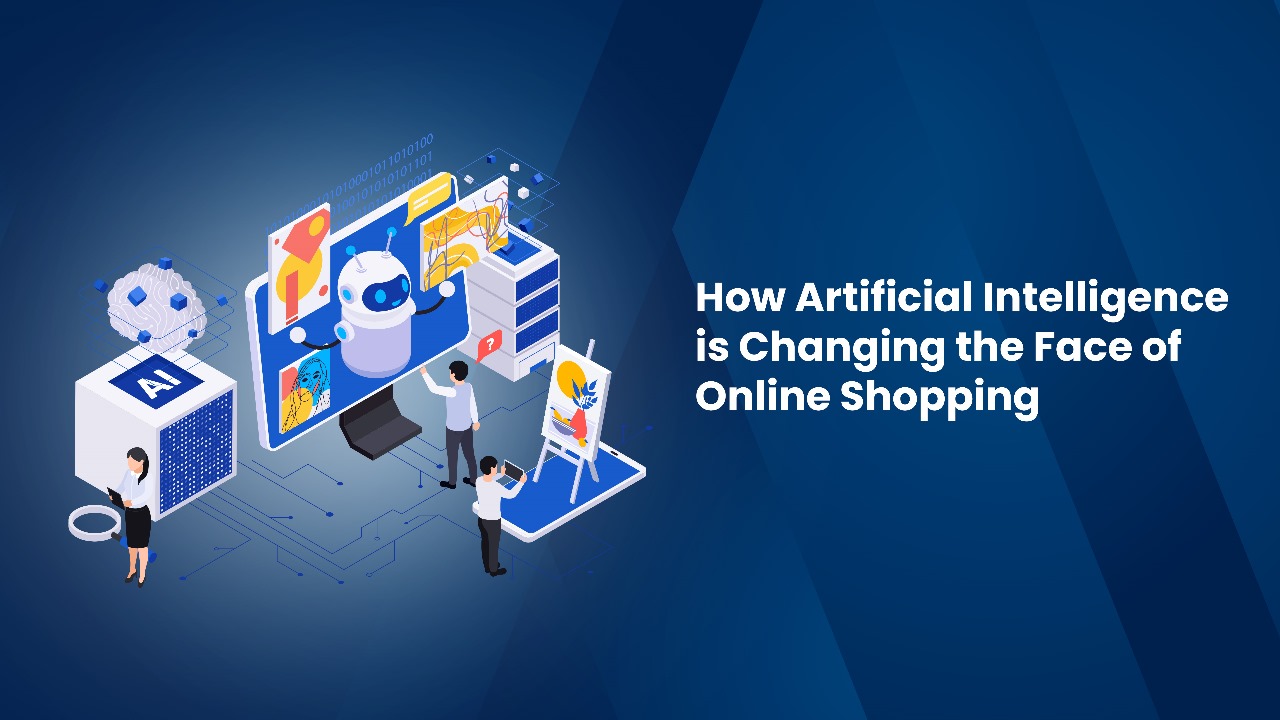How Artificial Intelligence is Changing the Face of Online Shopping

Online shopping has grown at an extraordinary pace, reshaping the retail landscape. At the heart of this transformation is Artificial Intelligence (AI), a technology that has been revolutionizing every aspect of e-commerce. From personalized experiences to enhanced operational efficiency, AI is helping online retailers stay competitive and meet evolving customer expectations. This blog explores the profound ways AI is changing the face of online shopping, improving everything from product recommendations to customer service.
Artificial Intelligence is redefining online shopping by turning data into personalized experiences, transforming customer service into real-time assistance, and making every step of the purchase journey smarter and more intuitive.
Personalized Shopping Experiences One of the most impactful ways AI is transforming online shopping is through personalization. Customers today expect a tailored shopping experience, and AI-powered algorithms make it possible to meet these expectations. By analyzing data on customers� browsing habits, purchase history, and preferences, AI can suggest products that match their interests. Enhanced Search Capabilities AI has also revolutionized how users search for products online. Traditional keyword-based search engines often return irrelevant results, frustrating users and leading to missed sales opportunities. However, AI-powered search tools, like visual and voice search, offer more intuitive ways to find products. Chatbots and AI-Powered Customer Service Customer service is an essential part of any online shopping experience, and AI is transforming this area by introducing smart chatbots and virtual assistants. These AI-powered tools provide 24/7 support, helping customers resolve issues, answer questions, or recommend products in real time. Unlike traditional customer service systems, which often require long wait times, chatbots respond instantly, improving customer satisfaction. Moreover, they can handle multiple customers simultaneously, reducing the workload on human customer service representatives. Over time, chatbots also learn from past interactions, making them smarter and more efficient at solving customer problems. These virtual assistants are also becoming increasingly sophisticated, capable of understanding customer emotions, language nuances, and specific preferences. As a result, the interactions feel more natural, providing a better overall shopping experience. Inventory Management and Demand Forecasting AI isn�t just changing the customer-facing aspects of online shopping; it is also transforming the behind-the-scenes operations, particularly inventory management and demand forecasting. For any e-commerce business, managing stock levels and predicting customer demand are critical for reducing costs and ensuring customer satisfaction. AI algorithms analyze historical data, current market trends, and even external factors like weather or economic conditions to predict future demand for specific products. This enables businesses to maintain optimal stock levels, avoiding issues like overstocking or stockouts. AI can also identify patterns in customer behavior that humans might miss, leading to more accurate forecasts and better decision-making. Fraud Detection and Security As online shopping grows, so does the risk of fraud. AI plays a pivotal role in detecting fraudulent transactions and ensuring the security of online platforms. Machine learning models are capable of analyzing millions of transactions in real time, identifying patterns that might indicate fraudulent behavior. Dynamic Pricing Another significant application of AI in online shopping is dynamic pricing. This strategy involves adjusting product prices based on factors like demand, competitor pricing, and customer behavior. AI algorithms can analyze these factors in real time to determine the optimal price for a product. Predictive Analytics for Marketing AI�s ability to process vast amounts of data has also transformed online marketing strategies. E-commerce businesses can now use predictive analytics to anticipate customer needs and offer targeted marketing campaigns. These insights help businesses craft personalized email campaigns, display ads, and promotional offers based on individual browsing behavior and purchase history. Conclusion Artificial Intelligence is undoubtedly changing the face of online shopping, offering benefits for both consumers and businesses. From personalized experiences and smarter customer service to enhanced security and operational efficiency, AI is at the core of modern e-commerce. As AI technology continues to evolve, the future of online shopping will become even more seamless, intuitive, and customer-centric. The retailers that embrace these changes will be well-positioned to thrive in this competitive, tech-driven landscape.
